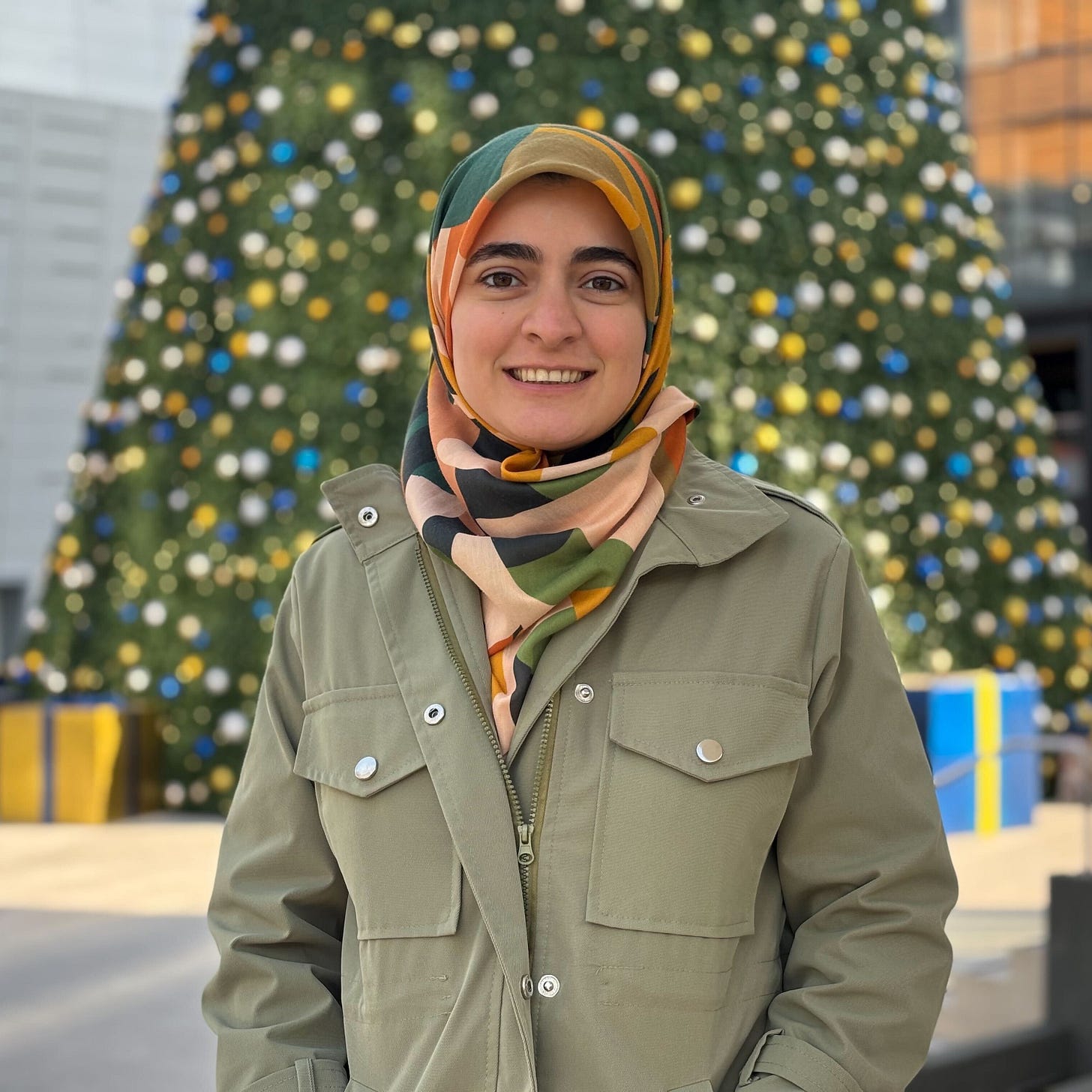Melika on Pursuing Neurology, Women's Health, and Research Across Borders
Melika Arab Bafrani (MD-MPH) is a physician-scientist focused on exploring the intersection of women's health and multiple sclerosis.
Melika Arab Bafrani, MD-MPH
Postdoctoral Scholar at UCSF Department of Neurology (Bove Lab)
MD-MPH, Teheran University of Medical Science, Tehran, Iran.
LinkedIn
Can you introduce yourself?
My name is Melika, and I am an MD-MPH from Teheran University of Medical Science.
Part 1: Career in Research
What are the steps you have taken ever since you were in college up until now?
In Iran, we go directly into a 7-year medical program after high school. I began my MD-MPH track during the pandemic, with my MPH project focused on burnout among healthcare workers during COVID, and my MD project exploring the pathways and mechanisms of the COVID virus. I initially got interested in neurology, especially neurological disorders like MS and Alzheimer’s, due to its high prevalence in Iran. I worked at an MS-focused research center in Iran, where the focus was on environmental factors like smoking, air pollution, and parental diseases as potential contributors to MS. I also started a systematic review of neurological disorders and investigated burnout and depression in medical students and healthcare professionals. Afterward, I decided to start a new chapter of my research career in the U.S. for better access to big data and resources, which led me to pursue postdoctoral research here.
What is your current main research project?
My main project explores the impact of B cell-depleting therapy on vaginal health, particularly its potential effects on vaginal infections and changes in the cervical microbiome, and how this could impact infant health. In the future, I plan to explore preventive strategies related to these findings.
How did you find passion in your current work?
The high prevalence of MS among women, especially in Iran, motivated me to focus on women's health within the context of MS research.
What made you pursue research alongside medicine/clinical work?
In Iran, many physicians focus solely on clinical work without engaging in research. However, I’ve always found research fascinating, and I wanted to combine it with clinical practice to make a broader impact.
While pursuing your passion in research, did you experience challenges of failure? How did you overcome it?
In Iran, research funding is extremely limited, to the point where sometimes doing research means no salary. There’s also a shortage of supplies, as research often has to rely on what’s leftover from clinical use. My previous PI advised me to focus on projects that don’t require heavy funding and to seek grants from other institutions. Despite these challenges, my passion for research has kept me motivated.
What are some challenges you encountered as a foreign scholar?
Before starting this journey to the US, I tried to make myself ready for some anticipated challenges. I especially spent a lot of time and effort looking for a suitable university for my postdoctoral research, which I am glad. Once I arrived, I faced difficulties such as language barriers, paperwork issues, and navigating the political landscape, especially as someone who had no prior experience living abroad.
What is the driving force of your research and medicine that gets you going?
My main motivation is to create a lasting impact through research. I want to pave a unique path in science that will guide others in the future, and I believe that even my small contributions can lead to big advancements in disease prevention and treatment. Above all, I simply love exploring research and science, which brings me joy.
What is your ultimate end-goal of science and research that you want to achieve while staying in academia?
I aim to make life easier for those affected by neurological disorders. Having had family members and friends suffer from diseases like Alzheimer’s and MS, I’ve seen firsthand how difficult it is to watch them struggle. This experience motivates me to conduct research that can alleviate the burden of neurological disorders on individuals and families, both in my home country and around the world.
Are you planning to pursue any other career paths in the future?
Although balancing clinical medicine and research has been challenging, I am committed to continuing as both a clinical neurologist and a researcher.
Part 2: Life Goals and Values
What are 3 big identities that you carry?
I see myself as a good family member, friend, and team member; a hardworking person (both in research and sports); and a dreamer.
Do you have any short-term or long-term personal goals in life?
In the short term, I aim to expand my research and network within the MS neurology field, connecting with other professionals in the field. In five years, I plan to begin a neurology residency. Longer-term, I hope to develop a rehabilitation device that bridges technology and medicine and eventually establish a new research branch in my home country, Iran.
Outside of work, I want to be better at facing new challenges and travel more.
What is one thing that you know now that you wished you knew when you were younger?
I wish I had been less fearful and more willing to embrace new experiences and challenges in different areas of life.
Interview date: 1/21/2025




